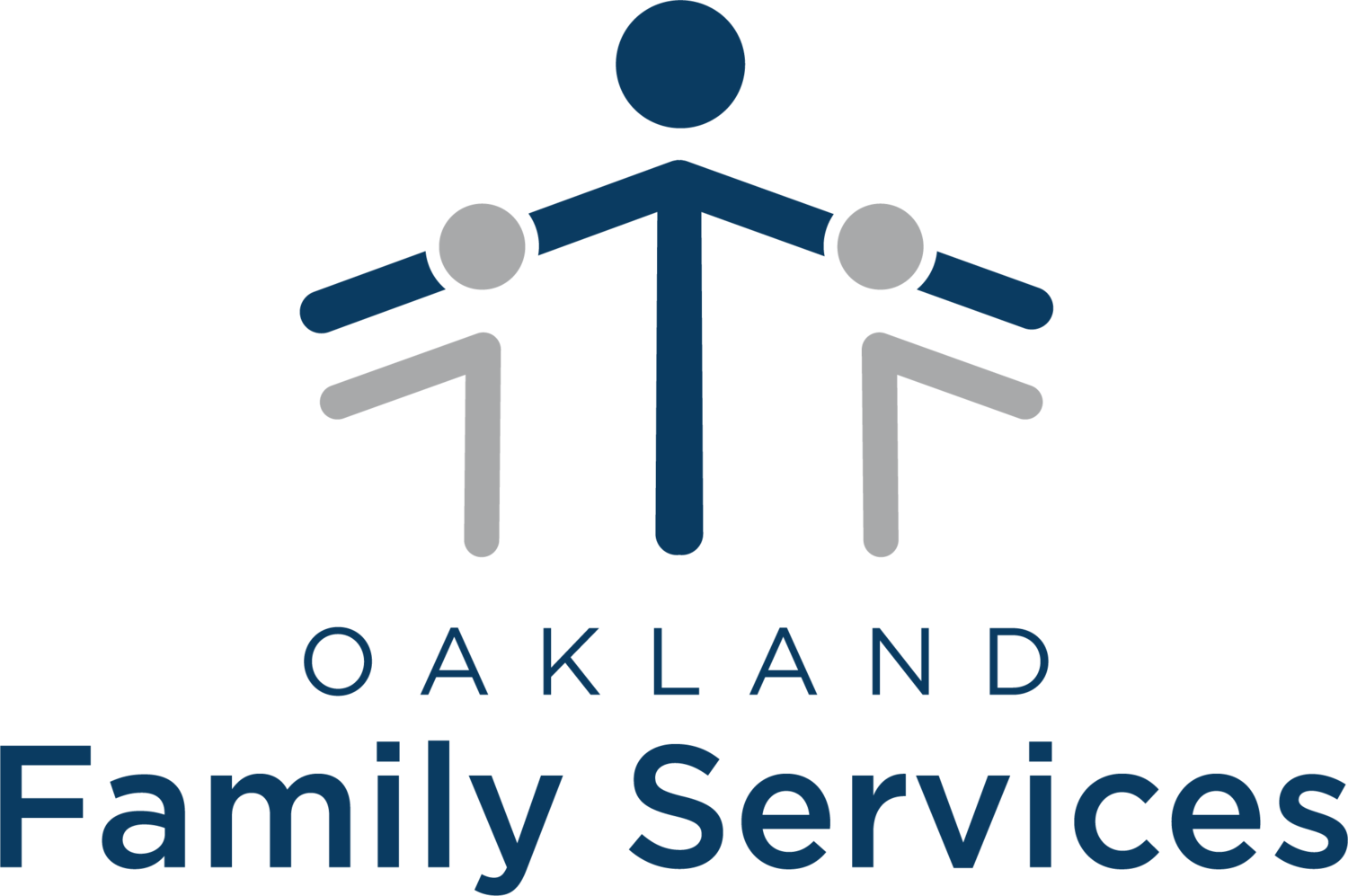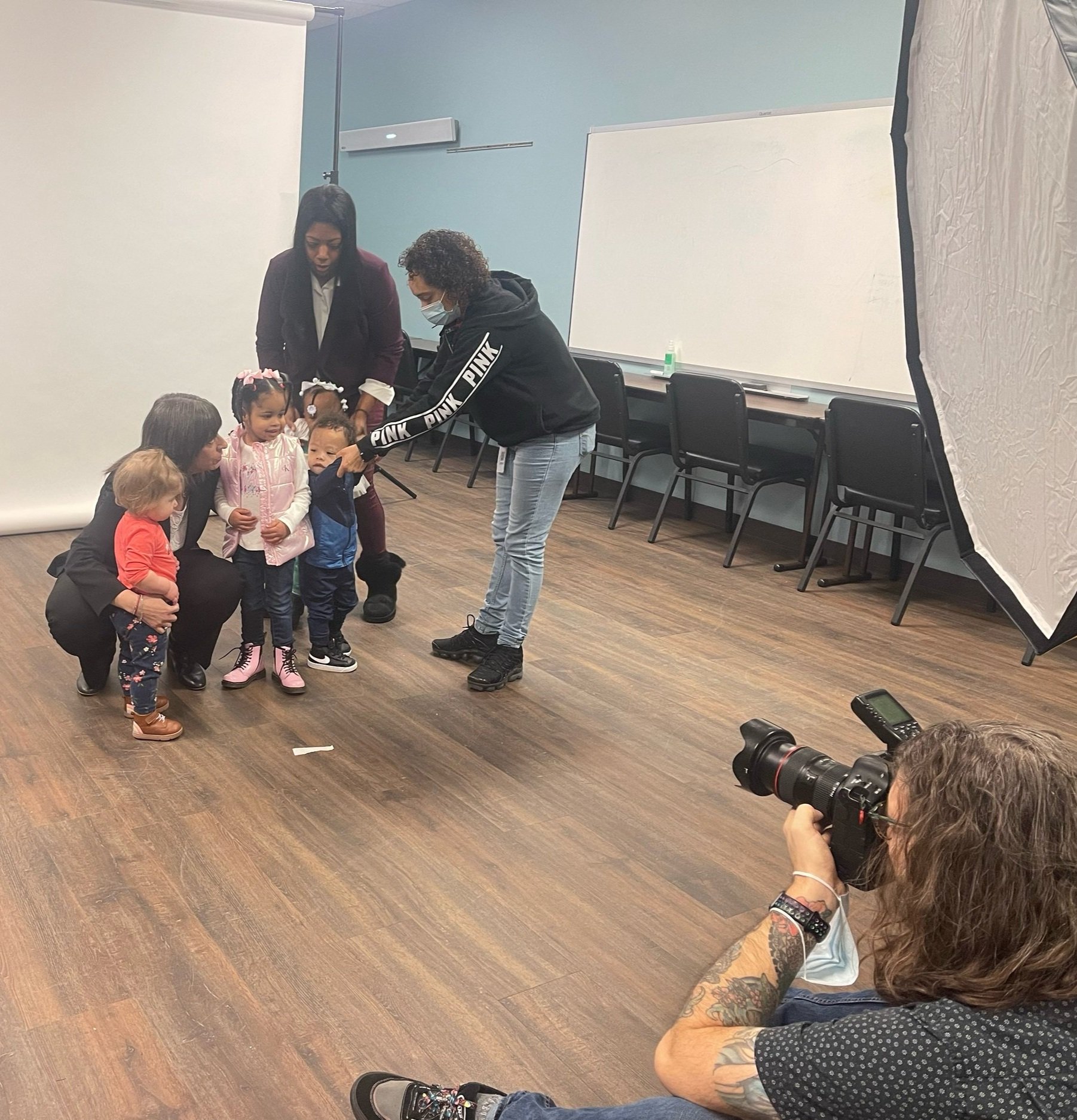A history of Oakland Family Services: Longtime administrative staff members look back
Bobbie Parham (left) is shown in an undated photo from Oakland Family Services’ archives. Parham has worked for the agency since 1978 and now holds the position of human resources coordinator.
As part of Oakland Family Services’ 100th anniversary, longtime administrative staff members Bobbie Parham, Julie Mison and Kathleen Lynd looked back on their careers at the agency and reflected on the experiences, leadership and mentors that helped shape their paths.
1970s-1980s
Oakland Family Services’ longest-running employee, Bobbie Parham, joined the organization in 1978 when it purchased the counseling agency she was working for, Alternative House.
She was just 18 years old at the time, working as a clerical assistant. In the 43 years since, she has been a jack of all trades at the agency’s locations in Pontiac and Walled Lake, working as a secretary, head of clerical, administrative assistant and executive assistant before landing in human resources.
“Every couple years, I was in another department doing another thing,” she said. “I was the baby for a long time. They kept calling me the baby, and of course if they needed anything, it always came my way. I always would work for the agency, not just the department I was working for.”
Parham’s career was born from something simple — her love for typing. When she joined Oakland Family Services, she could type 100 words per minute on the agency’s typewriters. Some of her fondest memories are from those early days, when clerical staff would transcribe therapists’ notes and type up dictated letters and other materials.
Alongside the typewriters was a phone switchboard that was phased out by about 1979 or 1980, Parham said. She was one of the first people at the agency to receive a Brother Word Processor as word processing machines with keyboards and memory to store and edit text began to replace traditional typewriters in the ‘80s.
Oakland Family Services moved its Pontiac office to the current building at 114 Orchard Lake Road in 1988-89. Parham was working in the Walled Lake office at the time, but she was soon transferred back to Pontiac.
“That was really the first time I was on the computer,” she recalled. “[My supervisor] said, ‘Do these letters,’ but I’m going, ‘But I don’t know how to use the computer!’ From there, I learned to love computers.”
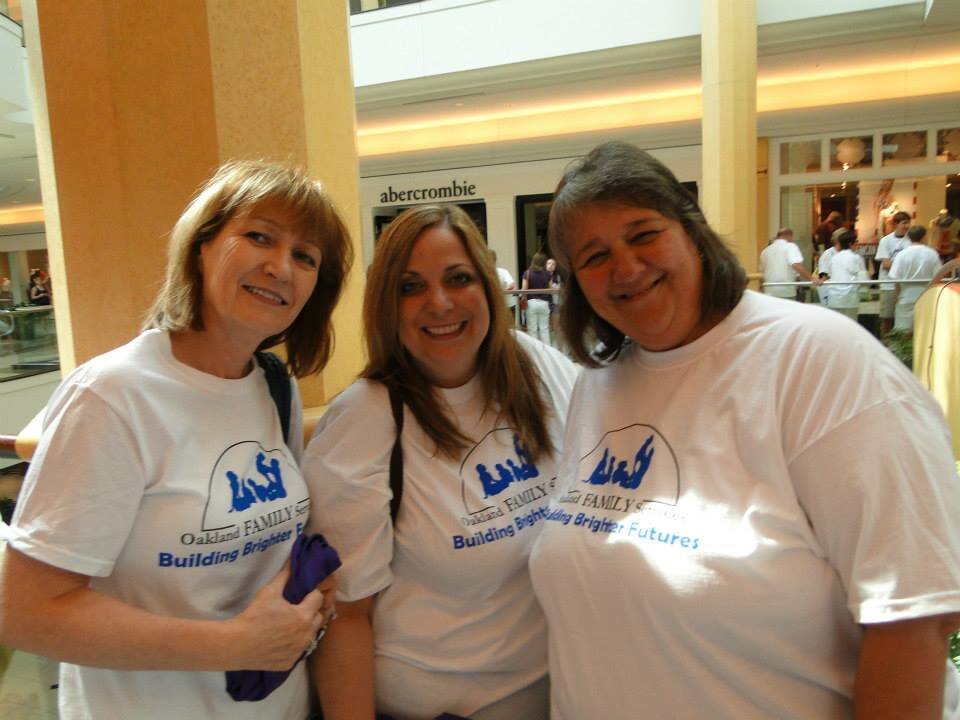
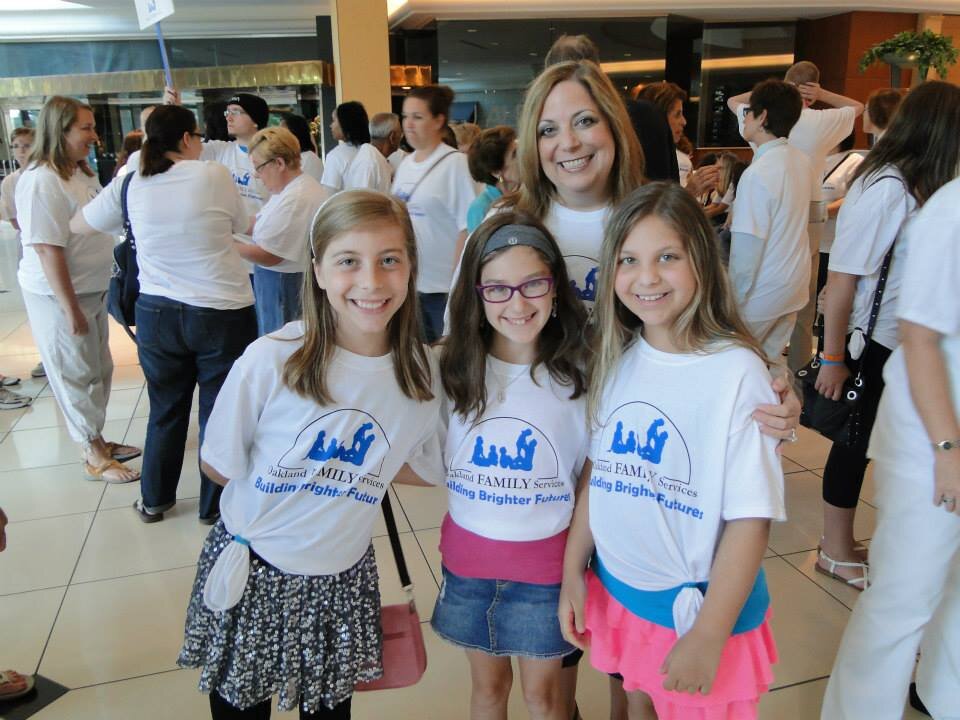
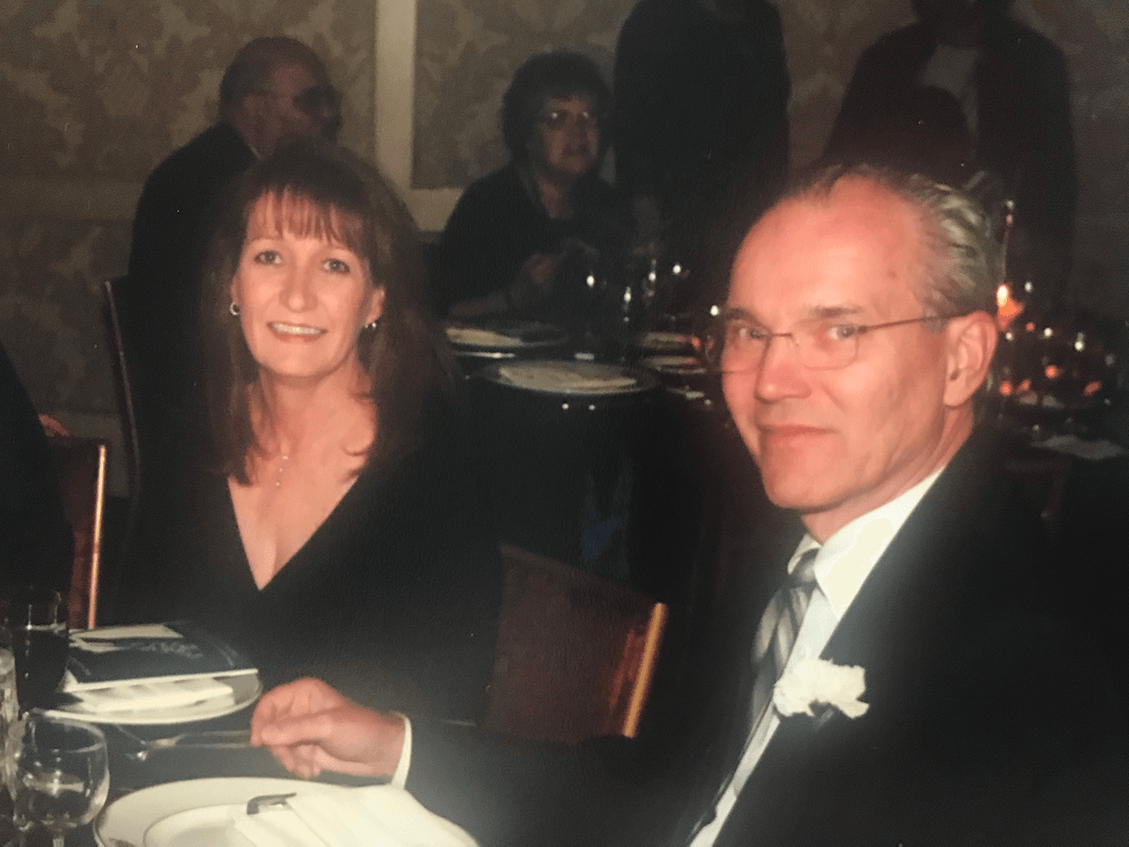
1990s
In the mid-to-late ’90s, the agency added a trio of therapists who would go on to become district managers and later vice presidents: Julie Mison, Natalie Marchione and Kathleen Lynd.
Mison was hired first as an intern in 1995, then brought on as a therapist in the family trauma unit in 1996. At the time, mental health and substance use issues were treated separately, rather than together as they are today. Clients with substance use issues were placed with specific substance use therapists.
“I remember doing an intake, and the client answered ‘yes’ for different questions related to substance abuse,” Mison recalled. “So I went to my supervisor at the time and said, ‘I don’t know what to do. They came in for a mental health issue, but they also have another substance abuse issue. Who do I transfer it to?’ And she said, ‘Well, why don’t we just cross-train you in substance abuse?’
“That was kind of the start of something really new for the agency, and I believe I was the first therapist that kind of embarked on that path. And I have to say to begin with I was a little anxious, but it turned out to be the best thing that ever happened to me. … That was a fundamental shift for the agency to integrate care and not separate out substance abuse from mental health issues.”
Mison went on to become one of the lead substance use therapists and then a director over the Walled Lake office. She helped in developing a behavioral health program to treat both mental health and substance use issues and combine separate children’s services and adult services departments into one. Lynd said this transition was complete by the time she was hired as a therapist in 1997.
“One of my strongest initial memories is, on my first day, Julie Mison came to welcome me, and she ended up being at my door for like an hour just being the most engaging, welcoming person,” Lynd said. “Little did we know at that point, we’d be working together for 25 years.”
Lynd went on to become the manager of the Pontiac site in late 1999 and oversaw the development of Project Recovery Intensive Services for Mothers (PRISM), an intensive substance use disorder program that focuses on the specific needs of mothers in recovery.
A significant shift in Mison’s career came when the Walled Lake office was downsized, and she became director over both Walled Lake and Farmington. The Farmington office had been acquired through a 1996 merger with the Farmington Area Advisory Council, a substance use treatment program that had more of a grassroots feel to it, Mison said.
“It felt like you were walking into a different agency,” she said. “… They were used to just functioning in a very different way than in a larger scope of an organization like Oakland Family Services.”
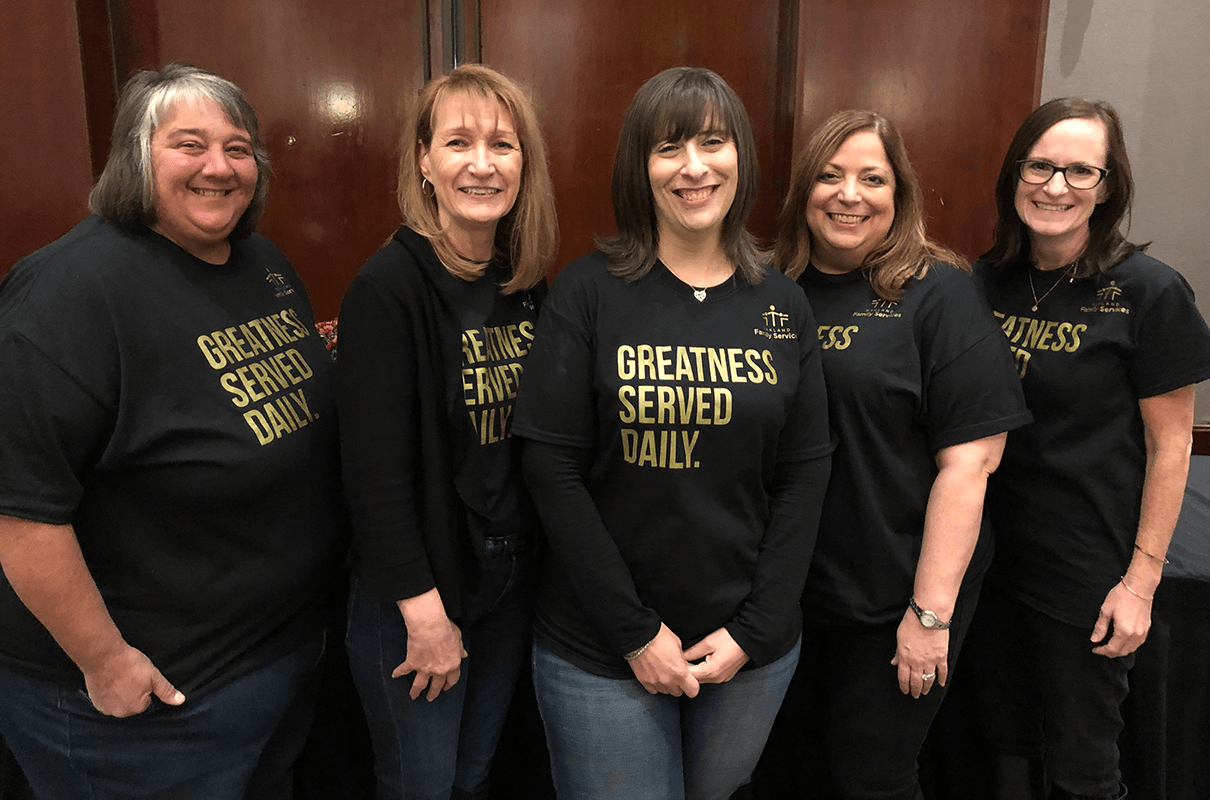
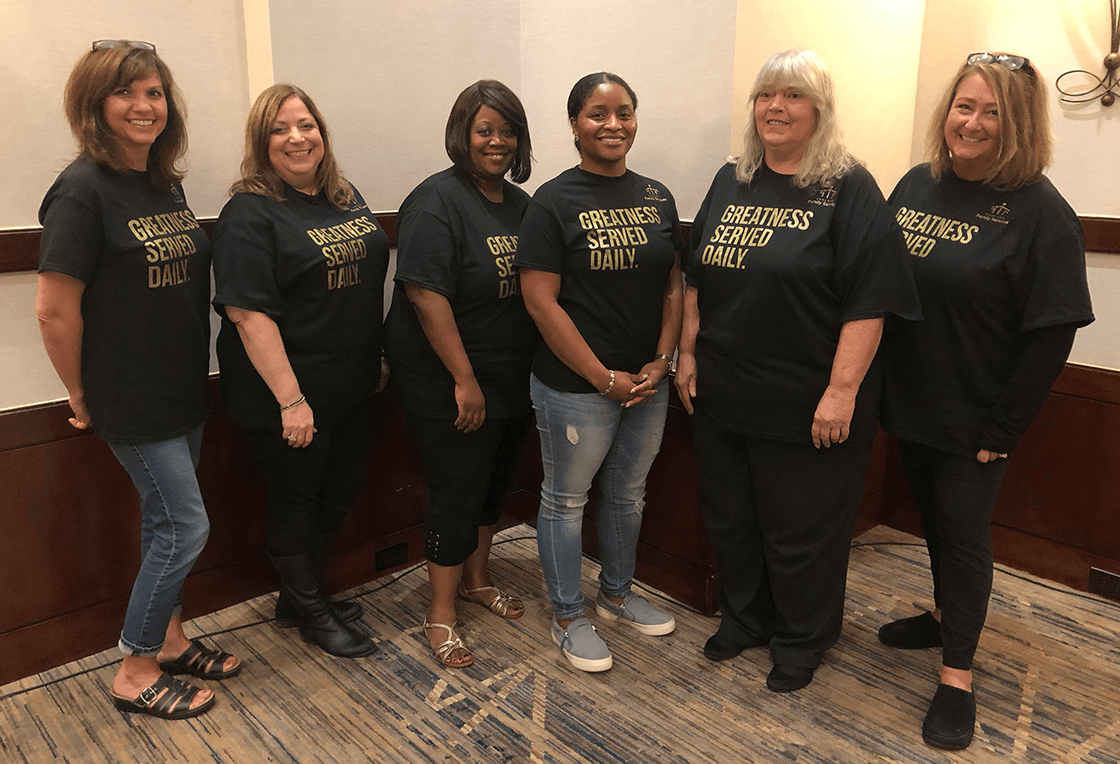
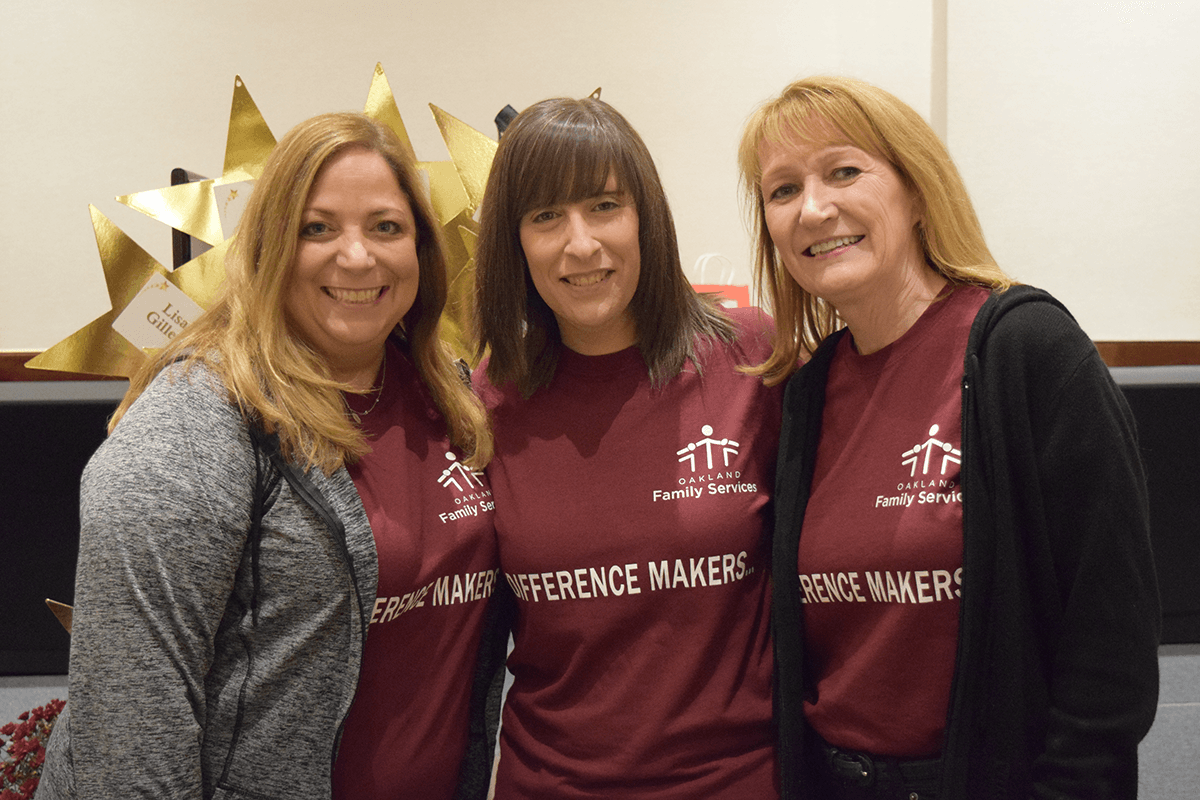
2000s and beyond
With the support of her supervisor Pat Shatrau, Mison, who was still in her 20s, set to work revamping the culture, policies and procedures of the Farmington site to be up to par with the rest of the agency. As the site flourished, she hired future President and CEO Jaimie Clayton as a clinician. When Mison went on maternity leave in 2001, she knew she could count on Clayton to watch over the site.
“Farmington was my baby before my baby,” Mison said. “I really felt this attachment and this responsibility, and it was very hard leaving it in someone’s hands, but I felt Jaimie was very capable.”
After returning from maternity leave, Mison felt she wasn’t doing her family or her work justice, and shared her concerns with Shatrau, who offered her a part-time position helping with process management. Mison threw herself into researching organizational development and change management.
Around the same time, Lynd was throwing herself into grant writing. She partnered with Natalie Marchione to write an application for a federal Center for Substance Abuse Treatment grant that provided PRISM with $500,000 of funding for three years. The grant doubled the size and impact of the program. Receiving it was a huge accomplishment for the agency and opened the door for more grants to follow.
“It changed my path at Oakland Family Services,” Lynd said. “It was that experience that led me into grant writing and program planning, and I really enjoyed that.”
Parham looks back fondly on the all-hands-on-deck experiences of grant writing.
“We would work sometimes 18 hours,” she remembered. “And you would have Pat [Shatrau] and [former President and CEO] Michael Earl, and I remember one time Julie Mison was there, and we’re trying to get that grant together and out the door. They didn’t just hand it off and say, ‘Do this.’ They were working alongside you. I know most people don’t like working until 2 or 3 in the morning, but that’s when you really get to know people.”
Lynd went on to become vice president of planning and communications, with Marchione becoming director of grants and contracts. A later restructure made Lynd vice president of organizational performance and impact, and Marchione vice president of quality and planning.
Both Parham and Mison wound up in human resources, with Mison becoming vice president of human resources and organizational effectiveness, then vice president of employee engagement and organizational development. She led the agency to adopt strategic human resource planning and continues to play a key role in maintaining and furthering the culture of the agency.
“[Oakland Family Services is] ethical, professional, there’s a pursuit of continuous process improvement,” Mison said. “There’s a pursuit of excellence in everything we do and quality. The fact that we’re accredited by COA and licensed and have different bodies that we’re accountable for, to me, adds a framework of excellence.”
Leadership over the years
Parham had the unique experience of working under three different president and CEOs and says each one “brought their own thing.” She remembers Bill Fry (president and CEO from the 1970s until 1997) as very personable and caring, and said Michael Earl (president and CEO from 1997-2014) cared so much about the agency and helped it grow with a business-like approach.
Julie Mison and Jaimie Clayton are pictured in 2017.
“I think Jaimie [Clayton] brings a bit of both,” Bobbie said. “She’s very approachable, she knows what’s going on, and she’s so smart.”
Mison was hired toward the end of Fry’s tenure and worked closely with both Earl and Clayton.
“I like to take credit with her that I hired her,” Mison laughed.
Back when the Walled Lake location had expanded and needed a new director, Mison had pushed Clayton to apply. The two have always had a special working relationship, first with Mison as Clayton’s supervisor, then as together directors, then as vice presidents.
“[As vice presidents,] we had an incredible partnership and we were extremely effective together,” Mison said. “Everything we did together, we just played off of each other extremely well. … We just had a way that we knew how to work with each other and play off of each other and add value based on what we each brought.”
Clayton became president and CEO when Earl retired in 2014 and counts both Earl and Mison among her mentors.
“I have learned an incredible amount from [Clayton],” Mison said. “Her growth and development has been outstanding to watch. I really have not seen anything like it. … It has been astonishing to watch, and I am proud of her.”
Help along the way
A common thread as employees shared their memories was that others helped guide them along the way. One name that came up again and again was Pat Shatrau.
“She gave me a lot of confidence,” Parham said. “She believed in me so much. I’d go to her and say, ‘Pat, I can’t do this,’ and she’d say, ‘Yes you can!’ She taught me a lot. She made me believe in myself.”
Shatrau retired as vice president of program operations in 2004 following a back injury and passed away in 2009. Lynd said she is remembered for her passion for Oakland Family Services, its clients and its staff.
“She loved the agency,” Parham said. “She lived for the agency.”
Other names that came to mind for Parham were Lynd, Don Wismer, Bob Bergstrand and Marian Barth. Lynd looked to Earl and Clayton.
“Both Michael and Jaimie have been great leaders and mentors,” Lynd said. “That has been part of what’s kept me here so long.”
For Mison, there were also Ann Weber and Betty Arnold.
“If I had clinical questions or risk questions I would call Ann, and she was always available,” Mison recalled. “Personnel issues, I would go to Betty, and Pat was just available for everything. I felt like I got the best of all of them. … I feel really blessed that I had such incredible role models and mentors that have incredible skill sets in many, many different ways.”
Something to celebrate
Mison said some of her absolute favorite memories at Oakland Family Services have been times when she was able to plan meaningful celebrations for staff, like retirement parties. When Shatrau retired in 2004, Mison planned a luncheon for her, made her a scrapbook of her time at the agency, and even twisted Earl’s arm to get him to sing and perform a song on guitar.
“It was really important to me after people had given back for many years for them to hear the impact that they made and to feel how much of a difference they made,” Mison said.
Kathleen Lynd
Lynd’s retirement is approaching in October 2021, and she said she is having a hard time walking away after two and a half decades at the agency.
“I love the work the agency does,” she said. “I love the culture. I so enjoy the people I work with. No grass ever looked greener than what I had at Oakland Family Services.”
After her retirement, Lynd plans to spend her time doing things she loves — exercising, drawing, painting, writing, reading, gardening and redecorating her home. As she departs, she believes Oakland Family Services’ future looks bright.
“I think Oakland Family Services has always been strategic in its growth and its assessment of and response to community need,” she said. “It works in constant process improvement, it is proactive, its leadership keeps a finger on the pulse of environmental changes. It’s adaptable, it’s resilient, it does not shy away from tough decisions. It’s got an excellent board of governors, always has. I think it has a very bright future, and its services are needed.”
Click here to read more staff memories from Fran Johnson, a longtime foster parent, adoptive mother and retired senior foster care program aide.
